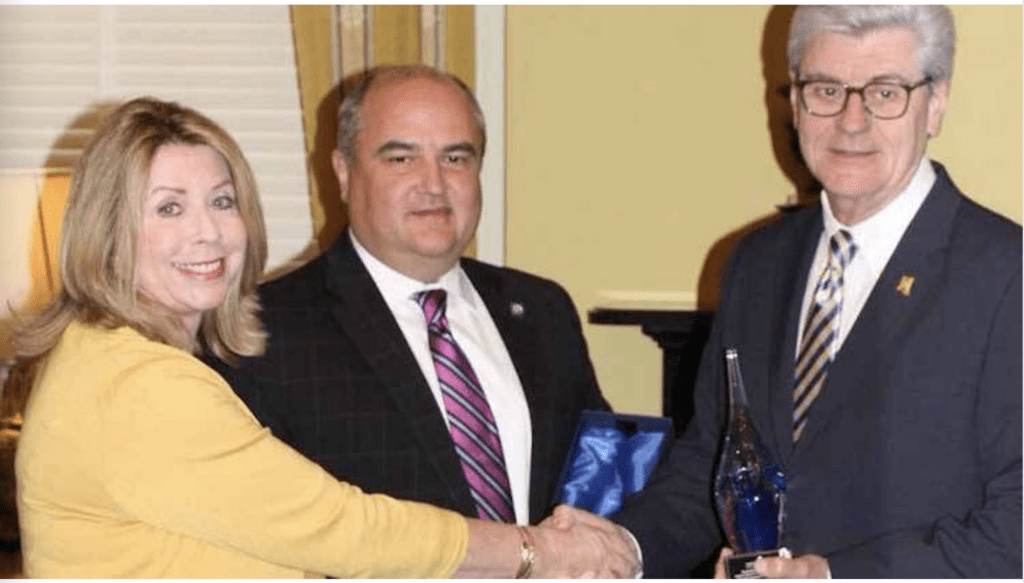
Editor’s note: This essay was originally published by the Mississippi Free Press. It can be viewed at: https://www.mississippifreepress.org/28130/mississippi-welfare-fraud-highlights-a-state-facing-crisis-of-leadership
Investing in the basic necessities and public goods that working families need to thrive is a recipe for strong, thriving communities and a brighter future for all Mississippians. Unfortunately, Mississippi’s statewide leaders are operating under a different guidance, and many working families in the state are suffering as a result.
If you type “Mississippi” into a search engine right now, one of two things will probably populate. Your search will either yield coverage of our state capital, Jackson, Miss., where nearly 160,000 people did not have access to reliable, clean water for a month and a half; or coverage of the largest welfare scandal in Mississippi’s history with federal TANF funds diverted to the pet projects of millionaire athletes on former governor Phil Bryant’s watch. That money was meant for the state’s most vulnerable families.
What do these two incidents have in common? Mississippi leaders who are content with the prolonged suffering of the most vulnerable in our state. As recently as last year, some residents of Jackson were without water for close to 6 weeks in the aftermath of a winter storm. Now the state capital is exiting a period where we went close to two months where residents did not have safe drinking water.
Gaslighting Most Vulnerable Mississippians
Almost a quarter of Jackson residents live in poverty. Many of these individuals are working full-time jobs and still are unable to get by with the cost of rent, gas, and trips to the grocery store. Right now, these same families are at the mercy of community organizations and state entities to provide drinkable bottled water.
Water is one of the most essential elements of life and one of the most abundant resources on the planet, but currently in a capital city in the United States, many families do not trust the water flowing out of their faucet.
The price tag for fixing the water system in Jackson is well over a billion dollars. A city of Jackson’s size simply can’t afford to shoulder that cost. Jackson will need investments from both federal and state entities in order to fix the water system. State officials have long known the seriousness of Jackson’s water-system issues.
Instead of working toward solutions, Mississippi lawmakers have bragged about the state’s budget surplus and secretly met to cut backroom deals to fund their projects with the hundreds of millions of dollars in federal relief money, but have never taken serious action to help fix the water system they use at least three months out of the year; that state agencies use year-round, and that serves about 120,000 Black residents.
Mississippi has consistently been known as one of the poorest states in the United States. Many families turn to the state for assistance when they fall on hard times. But many families are denied that assistance. We now know they are denied not because the State doesn’t have the funds, but because these funds support building new volleyball courts, sending the relatives of affluent individuals to luxury rehab facilities and fuel a propaganda machine that primarily functions to gaslight Mississippi’s most vulnerable communities.
Stepped On By Cleats of Greed and Corruption
Struggling Mississippi families have to send their children to underfunded schools that are critically short on teachers. If your relative has a drug problem, the only “rehab” that Mississippi will invest in is a prison cell. And regardless of how hard you may work, your cost of living will rise as your wages will stay the same, and Mississippi leaders will continue to call you lazy if you ask for help. But if you are a retired millionaire athlete, you can use state leaders as personal investment brokers.
Beyond this water crisis or welfare scandal, Mississippi is experiencing a crisis of leadership. Our communities desperately need leaders who will offer solutions instead of burdening those—who despite pulling themselves up by their bootstraps—are being stepped on by cleats of greed and corruption.
We need leaders who will push to enact solutions like implementing a state Earned Income Tax Credit (EITC), a proven policy decision that will keep families working while helping put more money in their and their communities’ pockets. We need leaders who will not needlessly return $130 million in federal dollars meant to assist Mississippians who are struggling to keep up with their rent.
Mississippi is one of 12 states that have still not expanded Medicaid. If the newly incorporated Healthcare for Mississippi’s ballot initiative is a success, the people will expand Medicaid through direct democracy, bypassing the Legislature.
Mississippi lawmakers have the opportunity to save the state approximately $206 million to $227 million annually between 2022 and 2027 and provide affordable health-care access to more than 100,000 Mississippians if they expanded Medicaid. We need leaders who will recognize that those $200 million can be an investment in our students, the health and well-being of the citizens who live here, and our failing infrastructure, instead of an opportunity to score partisan political points at the detriment of the people of Mississippi.
In order for Mississippi to truly thrive and ensure all who live here have an opportunity at a brighter future, we will need those in charge to invest in our state instead of ripping it apart. I hope the day comes quickly. Until then, our people will continue to suffer and pay the ultimate price.
This MFP Voices essay does not necessarily represent the views of the Mississippi Free Press, its staff or board members.
